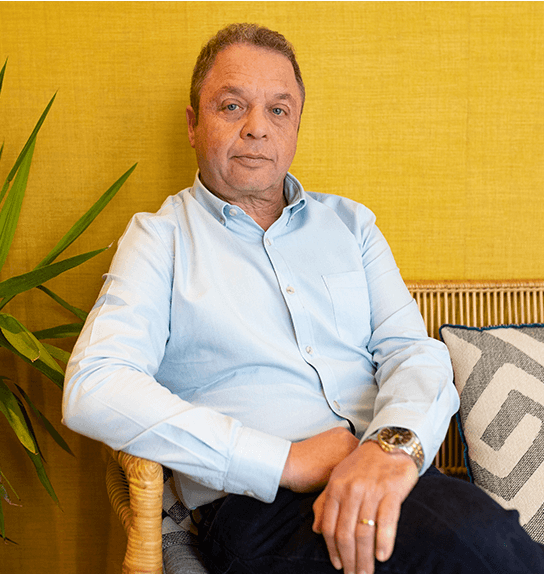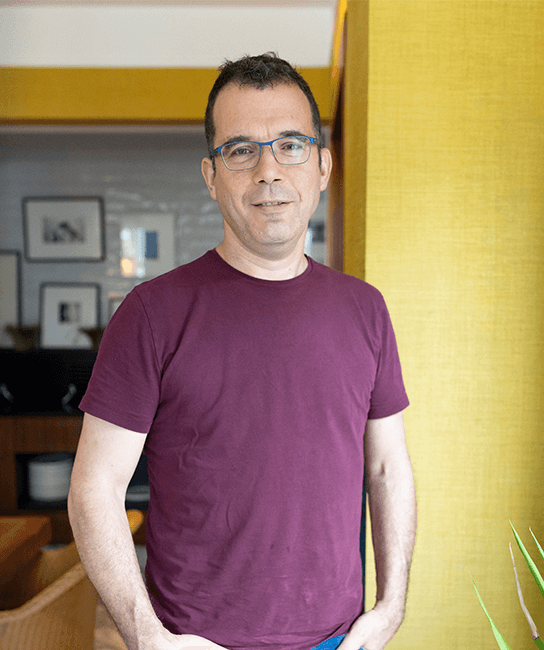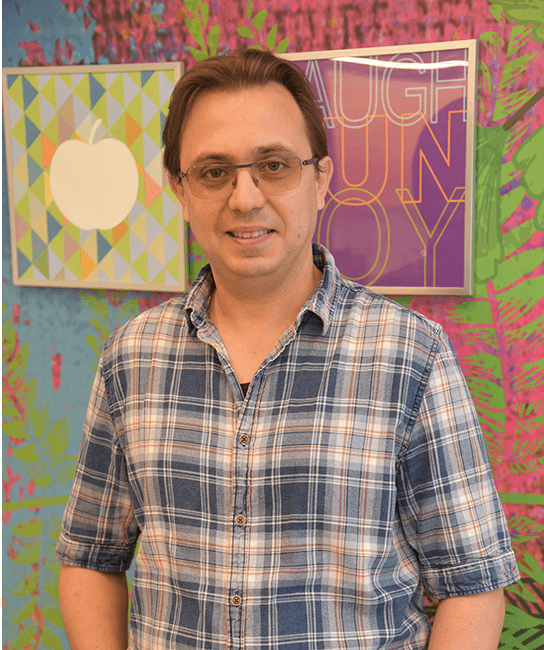Shmuel Harush is an Air Force guy with all his heart and soul, and has become the embodiment of Squadron 420 at the Hazor airbase. He has been serving at the base for 36 years, including a decade as an Elbit employee as the squadron’s technical officer and maintenance manager for the air combat and armament simulators. “Presently, about a quarter of the training time in the Air Force is devoted to simulators. I see it as the highest priority; to ensure the teams are prepared for any emergency scenario – whether it’s bad weather or impaired visibility, a bird, or G-d forbid, engine failure in the air,” he says.
Flight simulators are hugely important, both in training pilots and navigators, and in routine use in training and in flying missions throughout service in the standing army and reserves. In addition to reducing the outlay on expensive flight hours, the simulators provide a safe environment and space to visualize different combat scenarios – including multiple-team exercises and emergency situations. In 2009, Elbit was awarded an Air Force contract to operate and maintain an emergency center of simulation systems for F-15 and F-16 fighters. Six years later, the company also began supplying maintenance services to “Heartbeat”, the guided weapons-system training and knowledge center at the airbase, which serves all army divisions. Last year the Air Force demonstrated its faith in Elbit by extending the contract to 2035, and plans to establish a second training center, which will increase the number of simulation systems and upgrade their technological capabilities with an investment of hundreds of millions of Shekels, with the aim to double the number of simulator hours.
My story
“Before ‘Heartbeat’ was established, air crews could only train on simulators abroad. Now, it’s part of the training routine just a few minutes away on base, or directly from home for daily reserves,” Shmuel explains. “All the pilots, without exception, undergo an advanced training course with us. They come in the morning, train for various scenarios in the simulator, followed by debriefing and reaching conclusions, which maintains the squadron’s readiness. Our job is to manage this whole system, help the professional team prepare and grasp the missions; and from a technical side, of course to ensure that all the simulators and systems work. Not only do the aircrew enjoy the simulation-system field, but it is also used by the ground combat forces and civilian industry as well. For instance, railroad engineers train on our systems for missions unique to railways.”
Shmuel served in the Air Force both in his army service and army career, and was discharged in 2012. His final job for the Air Force was serving as a maintenance officer for guided-weapons simulation systems. After his work with Elbit’s people on base over the years, and given his vast professional experience, it was natural that as a civilian, he would find his place at the company, within the framework of emergency training and simulation systems. He later advanced to his present position as maintenance manager for all air combat and armament simulation systems. “I’m hooked on the job,” he laughs. “I haven’t missed a day in 36 years. The challenges involved in the maintenance of these systems are very complex, which creates interest, but also a great deal of responsibility.”
Shmuel’s wife is a pastry chef and owns a baking business. Their three children are a source of great pride: “Our oldest daughter graduated dentistry in Italy and is getting married soon. Our middle son, 28, is wrapping up machine engineering studies, and the youngest, our 25-year-old daughter, is studying behavioral sciences,” he says. The Harush family loves music and Shmuel surprised us by sharing his past as a drummer in a band during his army days. “We had terrific fun. I still like playing music and drum with my son, who’s also a musician. We like Omer Adam’s music and cheerful Mediterranean music in general.”







